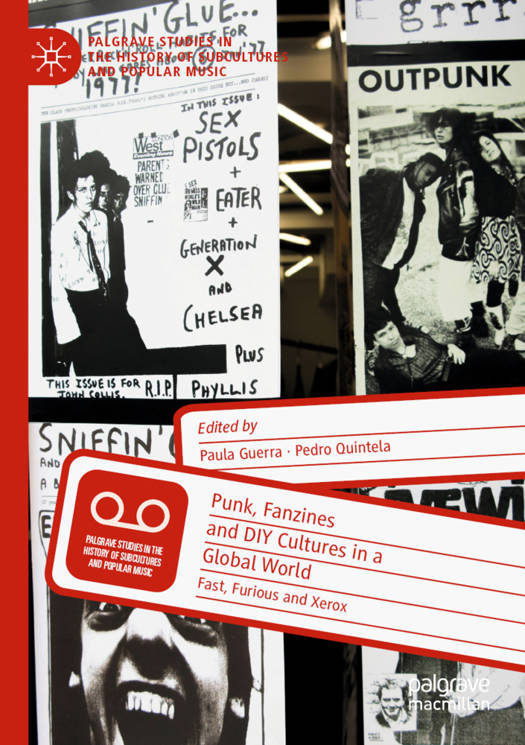
- Afhalen na 1 uur in een winkel met voorraad
- Gratis thuislevering in België vanaf € 30
- Ruim aanbod met 7 miljoen producten
- Afhalen na 1 uur in een winkel met voorraad
- Gratis thuislevering in België vanaf € 30
- Ruim aanbod met 7 miljoen producten
Zoeken
Punk, Fanzines and DIY Cultures in a Global World
Fast, Furious and Xerox
€ 147,95
+ 295 punten
Omschrijving
Since the 1970 and 1980s, fanzines have constituted a zone of freedom of thought, of do-it-yourself creativity and of alternatives to conventional media. Along with bands, records and concerts, they became a vital part of the construction of punk 'scenes', actively contributing to the creation and consolidation of communities. This book moves beyond the usual focus on Anglophone punk scenes to consider fanzines in international contexts. The introduction offers a theoretical, chronological and thematic survey for understanding fanzines, considering their contemporary polyhedral vitality. It then moves to consider the distinct social, historical and geographic contexts in which fanzines were created. Covering the UK, Portugal, Greece, Canada, Germany, Argentina, France and Brazil, as well as a wide range of standpoints, this book contributes to a more global understanding of the fanzine phenomenon.
Specificaties
Betrokkenen
- Uitgeverij:
Inhoud
- Aantal bladzijden:
- 210
- Taal:
- Engels
- Reeks:
Eigenschappen
- Productcode (EAN):
- 9783030288785
- Verschijningsdatum:
- 8/01/2021
- Uitvoering:
- Paperback
- Formaat:
- Trade paperback (VS)
- Afmetingen:
- 148 mm x 210 mm
- Gewicht:
- 285 g

Alleen bij Standaard Boekhandel
+ 295 punten op je klantenkaart van Standaard Boekhandel
Beoordelingen
We publiceren alleen reviews die voldoen aan de voorwaarden voor reviews. Bekijk onze voorwaarden voor reviews.










